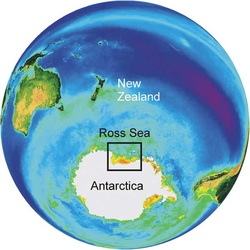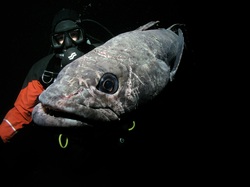|
Have you heard of the Ross Sea? If not read on. It's also known as The Last Ocean, the most pristine ocean in the world today. That is, it was, until in 1996 a single fishing boat from New Zealand was sent down to check out the grounds as a location for fishing. With the discovery of the Antarctic Toothfish fleets of fishing boats from across the globe descended and began to destroy the last untouched ocean on our precious planet. Now that we are beginning to see the effects on the ecosystem can we convince enough people that it is worth saving?  The Ross Sea is a deep bay of Southern Ocean in the Antarctic, home to a myriad of wildlife including seals, penguins and killer whales. Unlike the rest of the worlds oceans it is relatively untouched and has remained free from pollution, invasive species, mining and overfishing. It has been a base for scientific research looking at intact ecosystems and trying to understand the natural balance that is impossible for humans to replicate. Based off the coast of Antarctica it was considered pretty safe from the poisonous hand of humanity after a treaty set down in 1959 between twelve countries vowed that the whole of the Antarctic continent would be a place of peace and science, and where the environment is fully protected. Since then thirty-four more countries have joined the treaty making 80% of the world devoted to protecting this beautiful natural land. But when in 1996 the Ross Sea became a gold-rush style fishing ground it was realised by scientists that something had been over-looked - the treaty covered the land of Antarctica but not the oceans surrounding it. Thousands of ships began piling in and using long-line fishing techniques began ripping out of the ocean that which makes the Antarctic region special and unique.  What attracted fishermen so much was the Antarctic Toothfish - a top predatory fish that can grow in excess of 2 metres long and more than 150kg in mass. It is a fundamental player in the ecological balance of the Ross Sea as a predator that eats a variety of fish and squid, but also as prey to Weddell Seals, sperm whales, colossal squid and a specific type of killer whale that feeds almost exclusively on the toothfish. The problem is very little is known about the life-cycle of a toothfish. It is estimated that it lives for around 50 years and grows very slowly. But numbers of the fish are unclear, and their reproductive cycle is completely at a scientific guess. Think you've never heard of a toothfish? You've certainly never eaten something by that name. How about Chilean sea bass? Does that sound a little more familiar? Though it isn't a bass of any type, and only a small percentage of that served up on dinner plates is from Chile the name was thought to be somewhat more appetising to consumers. It is a popular dish and consumed at particularly high rates in the United States, Japan, China, Kora and Singapore. However consumers cannot be blamed for their consumption as it has been marked by the Marine Stewardship Council (MSC) as a sustainable fish to eat. It is stated that it is sustainable to fish up to 50% of the species in Antarctica but I question how can they specify such a number when they don't even know how many there are? And not knowing their specific breeding habits makes it very difficult to say we are fishing it in a sustainable way. It has become clear in the years since fishing began that serious effects are beginning to take place. Where scientists researching the toothfish's ability to produce anti-freeze proteins that keeps their blood from crystallising could once catch over five-hundred fish in a year have, in the past year, been reduced to perhaps one or two. It has also been noticed that numbers of killer whales in the area have seriously declined. However this has not gone unnoticed and this year a meeting between the 25-member Commission for the Conservation of Antarctic Marine Living Resources (CCAMLR) was held with a proposal to establish a Marine Protected Area (MPA) in the Ross Sea. The decision, however, could only be made on a unanimous vote. Russia disagreed. The waters did not receive protection. All hope is not lost and New Zealand and the United States have submitted a second revised proposal to establish a protected area that would cover roughly 1.34 million km2 - this would be the largest MPA in the world. 1.25 million km2 of this area would be no-take. The meeting is to take place in October in Hobart, Australia and deliberations will continue. Having read this post you might ask what can you do to support this cause? First stop visit this website: http://www.lastocean.org/ A start would be to refuse to consume Chilean Sea Bass, and to ensure you check where your fish has been caught from and how. Eating only line caught fish is a sure way to know it is sustainable. You can also follow this link to a site put together by the Antarctic Ocean Alliance where you can email decision makers in all of CCAMLAR's countries. Write to local newspapers and MPs asking them to drum up support for the cause. Share this blog and share with your friends and family that this is an ongoing problem, but with help and support we CAN do something and protect the Last Ocean.
0 Comments
Leave a Reply. |
